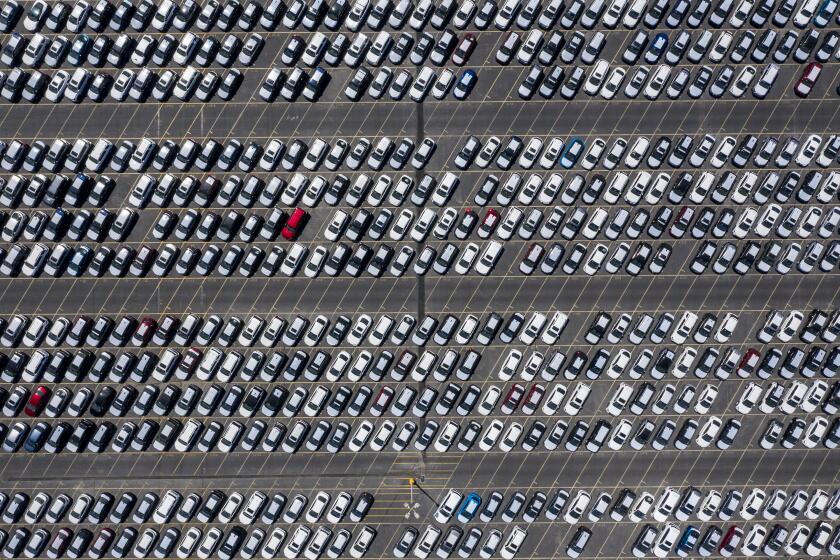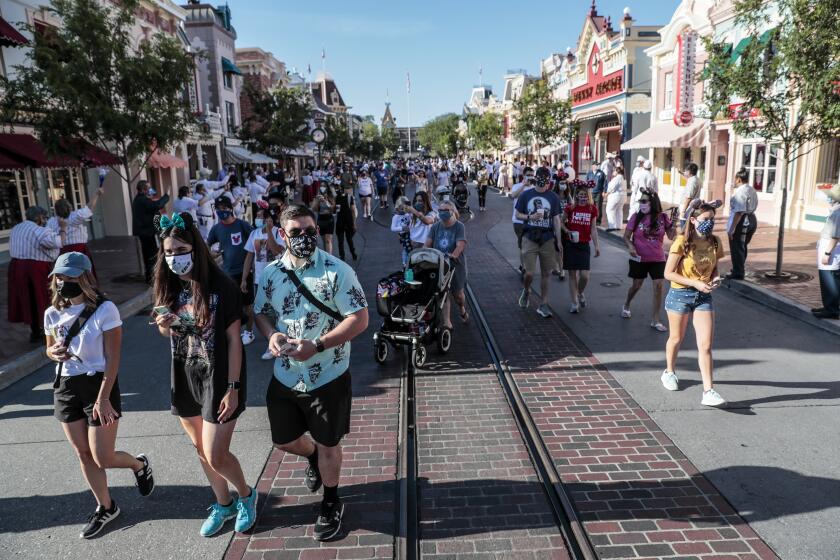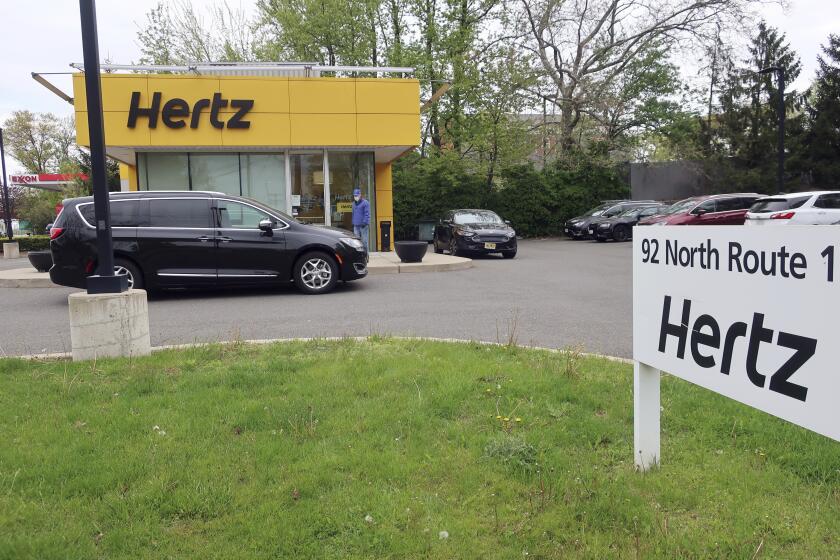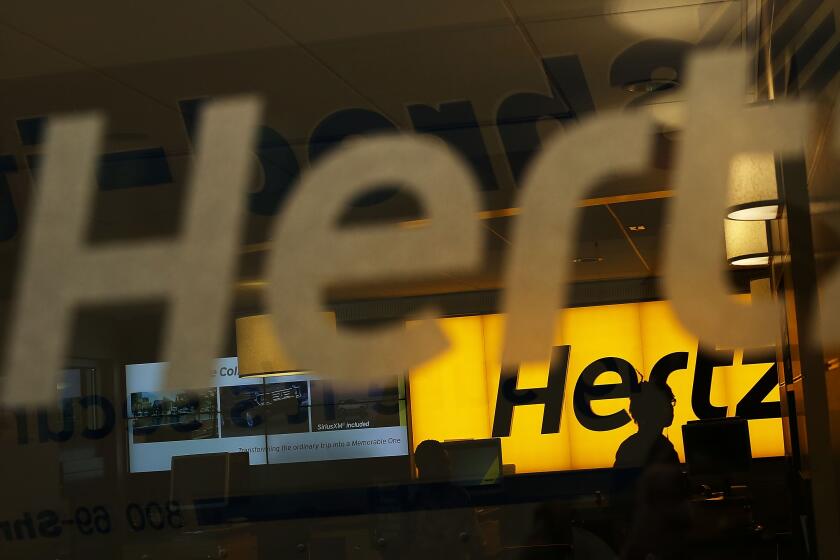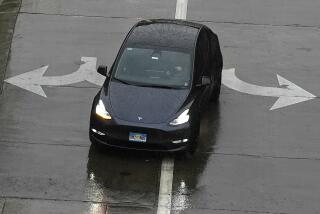Why renting a car will be a pain until at least 2022
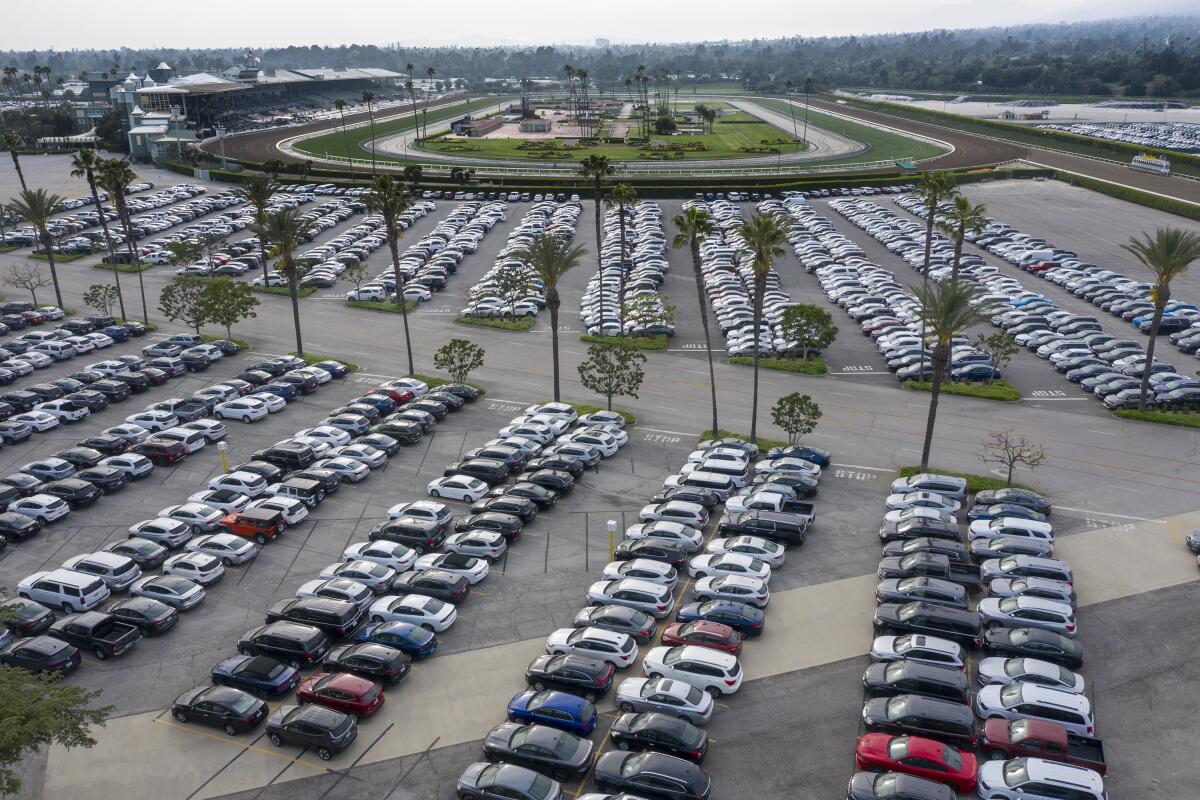
On a trip to visit Disneyland with his children, John Jimenez of San Jose reserved a compact car from Dollar Rent a Car at Los Angeles International Airport. What he got when he landed was a headache.
Due to a vehicle shortage, the car rental agency offered him a van that he said reeked of cigarettes and marijuana instead of a compact car. Jimenez refused the malodorous van, and after a more than two-hour wait he settled for another van with more than 60,000 miles, visible body damage and a “musty odor” that seemed to come from the air conditioning system.
“The area where the compact cars were was empty,” he said, adding that he has demanded a full refund.
A global microchip shortage that has cut production of new cars continues to deal a heavy blow to car rental companies, but most of the pain is being felt by travelers such as Jimenez who find themselves waiting in long lines, paying nearly double the rates of earlier this year, getting denied the vehicle they reserved or ending up driving away in a car with lots of extra wear and tear.
The bad news is that the car shortage — and the headaches for car renters — won’t ease until 2022 or later, according to car rental industry experts.
“The supply of new vehicles remains very tight,” said Gregory Scott, a spokesperson for the American Car Rental Assn.
A unique set of circumstances brought on by the pandemic has roiled the used car market, leading to an inventory shortage that has sent prices soaring.
Because of the shortage, car rental companies are keeping their cars longer before selling them and replacing them with new vehicles. In the past, rental firms sold their cars when they reached 25,000 to 50,000 miles, but they are now keeping them until they reach nearly 90,000 miles, Scott and other industry experts said. Rental companies are also trying to restock their aging fleet by buying back cars that had been previously sold off at auction to used-car dealerships.
Challenges filling open jobs have exacerbated the situation, making it difficult for rental companies to staff the rental counters and hire workers to move cars from low-demand locations to high-demand outlets, industry insiders say.
As a result, car rental prices jumped to an average high of $120 a day this summer, compared with about $45 at the beginning of the year, according to a study by the travel booking site Hopper.com. Prices have since dropped to about $80 a day and continue to trend downward as demand declines with the end of the summer travel season, the study found.
But prices are expected to climb again as travel picks up during the upcoming holiday season, said Steve Sintra, vice president and general manager of North America at the travel website Kayak.com.
“The increase in demand around rental cars is something we’ve been seeing all summer, and Kayak’s data is showing that demand isn’t going to slow any time soon, especially as we enter the holiday season,” he said.
Good news for theme park fans: Wait times have dropped at Disneyland and California Adventure Park compared with before the pandemic.
The problems for the car rental industry began when the pandemic forced the closure of factories around the world, interrupting the production of microchips needed for electronic devices, laptops and cars. The pandemic also closed down ports in Asia, which disrupted the microchip supply chain. Automobile manufacturers canceled chip orders, assuming demand for new cars would dry up during the pandemic.
But once demand for vehicles and electronic devices for homebound workers bounced back, chip manufacturers struggled to keep up with the new orders. Japanese carmaker Nissan said it is planning to make 500,000 fewer vehicles in 2021 because of the chip shortage. Other auto manufacturers, such as General Motors, have been making vehicles and storing them by the thousands in giant parking lots, waiting for the microchips they need to operate.
Because of the shortage, the U.S. car rental industry was able to purchase only about 800,000 new cars in 2020 to restock its aging fleet, less than half of what the industry bought in 2019, Scott said.
Microchip manufacturers say it may be a year or two before supplies can start to meet the growing demand. That means the shortage of cars won’t ease until 2022 or later, industry experts say.
“It continues to be a lot of uncertainty,” Will Withington, senior vice president at Enterprise Holdings Inc., said at a recent rental car industry convention in Las Vegas.
In a statement, Enterprise said the company is able to meet current customer demand by extending the “normal cycle of our fleet” with rigorous safety and maintenance standards.
Industry rival Hertz Corp. said it is “working closely with our automotive partners to add new vehicles to our fleet as quickly as possible, purchasing low-mileage, pre-owned vehicles, and moving vehicles to the areas with highest demand.”
A Highland Park man, who says he hasn’t smoked for 25 years, was told by Hertz to pay a $400 fee after workers claimed they smelled cigarettes.
Such assurances are little comfort for Kimmy Katz of Titusville, Fla., who described her recent car-renting experience as “very frustrating.”
She rented a Nissan SUV for a two-week business trip in Florida from Dollar Rent a Car. But one of the tires had a slow leak that required her to fill it every two days, Katz said. When the tire finally went flat, she said, the car rental agency denied her request for a new car or a new tire.
I “am thanking whatever god or science is out there that I did not break down on I-75 or I-10 where there is no cell service,” she said.
Asked to respond to the problems cited by Jimenez and Katz, Hertz, the parent company of Dollar, said the company “would need to look into those specific situations to be able to comment further.”
“When customers raise a concern, we look into it and try to make it right,” Hertz said.
Industry experts say travelers who want to avoid such headaches should book cars as early as possible and try to choose car rental outlets in small or midsize airports where demand is lower.
“I’ve never seen anything like this,” said Eben Peck, executive vice president for advocacy at the American Society of Travel Advisors. “COVID has put so many stresses on the system, and this is just one of them.”
A woman told Hertz she found a used condom in a rental car. Then Hertz billed her for dog hair, even though she didn’t have a dog in the vehicle.
More to Read
Inside the business of entertainment
The Wide Shot brings you news, analysis and insights on everything from streaming wars to production — and what it all means for the future.
You may occasionally receive promotional content from the Los Angeles Times.
